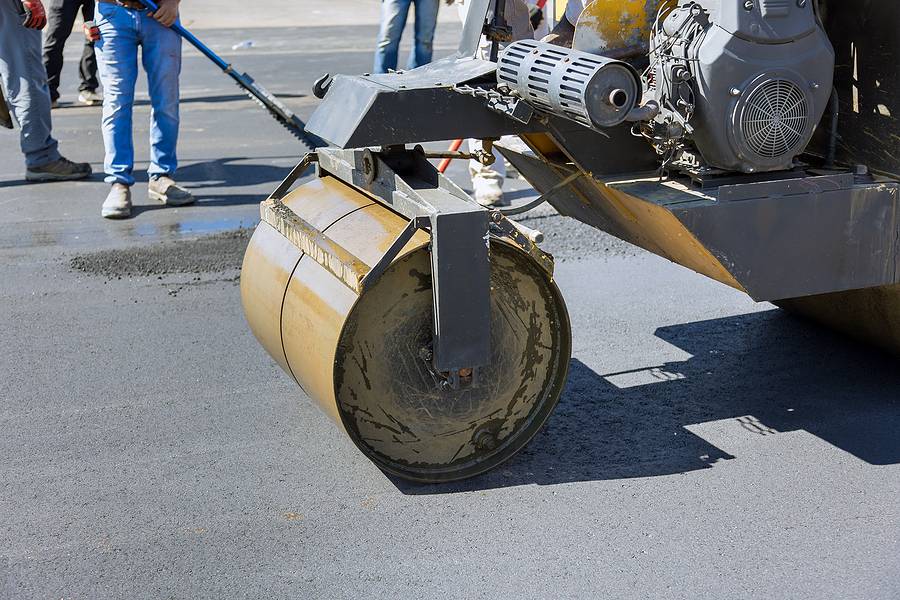In today’s competitive business landscape, first impressions can make a significant difference. One often overlooked aspect of this is the quality of your commercial pavement. A well-installed, maintained parking lot can contribute to the overall image of your company, providing an inviting entrance for your customers and clients. Conversely, poorly maintained or installed pavement can lead to negative impressions and potential safety issues.
This post aims to provide vital information every business owner needs to know about commercial pavement installation—because your parking lot is indeed more than just a place to park.

Types of Commercial Pavement
Before diving into the installation process, it’s essential to understand the different types of commercial pavement available. The most common options include asphalt, concrete, and pavers.
Asphalt
Asphalt is a popular choice for commercial paving due to its durability and cost-effectiveness. It is made from a mixture of aggregate materials (such as sand and gravel) and liquid asphalt cement. This combination creates a smooth surface that can withstand heavy traffic and harsh weather conditions.
Concrete
Concrete is another widely used option for commercial pavement. It is made from a mixture of cement, water, and aggregates such as sand or crushed stones. Unlike asphalt, concrete offers a more uniform appearance with its light grey color. However, it tends to be more expensive and requires regular maintenance to prevent cracking.
Pavers
Pavers are individual units made from materials like concrete, clay, or natural stone. They are popular for their aesthetic appeal and can be arranged in various patterns to add visual interest to your parking lot. However, paver installation is a more intricate process and can be costly compared to asphalt or concrete.
The Commercial Pavement Installation Process
Regardless of the type of pavement chosen, the installation process typically follows these steps:
Site Preparation: This involves clearing the area of any debris, leveling the ground, and creating proper drainage.
Base Installation: Depending on the type of pavement selected, a sturdy base layer may need to be installed before laying down the top layer.
Pavement Installation: This step involves laying down the selected pavement material, ensuring proper thickness and smoothness.
Finishing Touches: Once the pavement is in place, the final touches are added, including sealcoating, line striping, pavement markings, bollard posts, rumble strips, traffic signage, and any necessary repairs.
It’s crucial to hire a reputable and experienced commercial paving company to ensure that these steps are finished correctly. Improper installation can lead to premature deterioration and costly repairs down the line.
Pavement Maintenance is Key
Regular maintenance is essential for prolonging the life of your commercial pavement. It’s recommended to have your parking lot inspected at least once a year by a professional paving contractor. They can identify any minor issues before they turn into significant problems, saving you time and money in the long run. In fact, it is strongly encouraged to have a parking lot preventative maintenance plan in place ahead of installation.
In addition to professional inspections, there are some maintenance tasks that business owners can perform themselves:
► Regularly sweep and remove debris from the pavement surface.
► Repair any cracks or potholes promptly to prevent them from worsening.
► Sealcoat every 2-3 years to protect against weather and traffic damage.
The Importance of ADA Compliance
When installing a new parking lot, it’s essential to consider ADA (Americans with Disabilities Act) compliance. This ensures that your parking lot is accessible for people with disabilities, such as wheelchair users. Some key factors to keep in mind include providing ample designated accessible parking spaces, proper signage, striping, and creating a smooth and level surface for ease of movement.
Conclusion
Commercial pavement installation is an investment in the overall image and functionality of your business. By understanding the different types of pavement, the installation process, and the importance of regular maintenance and ADA compliance, business owners can make informed decisions about their parking lot. Most importantly, partnering with a reputable paving company is key to ensuring well-installed and long-lasting commercial pavements that will leave a positive impression on your customers for years to come.
Would you like to learn more about commercial pavement procurement and installation? Contact ACI Asphalt and Concrete at 317-549-1833 for licensed, bonded, and insured commercial paving and road construction services in Indianapolis, Indiana. We serve commercial and industrial clients all throughout the state.
Related Posts:
The Best Times of Year to Install New Pavement
How to Maintain an Industrial Paved Area After Installation
Soil Instability Troubleshooting Tips for Paving Projects

